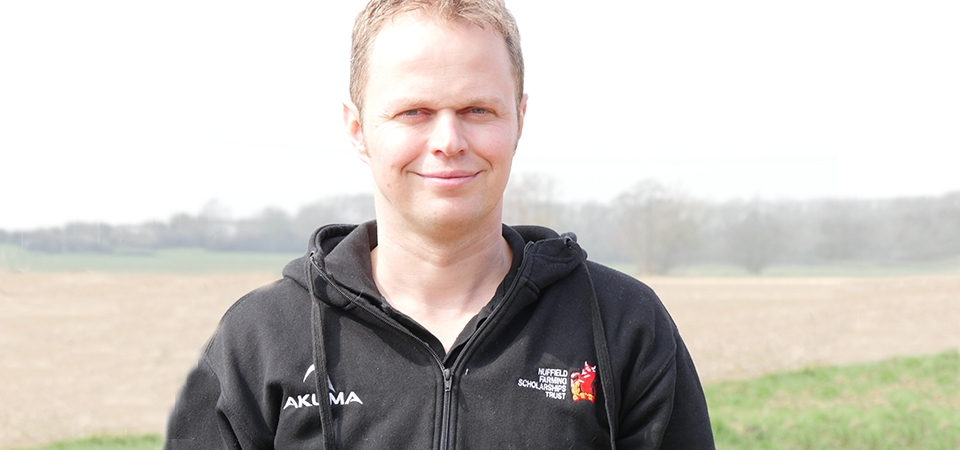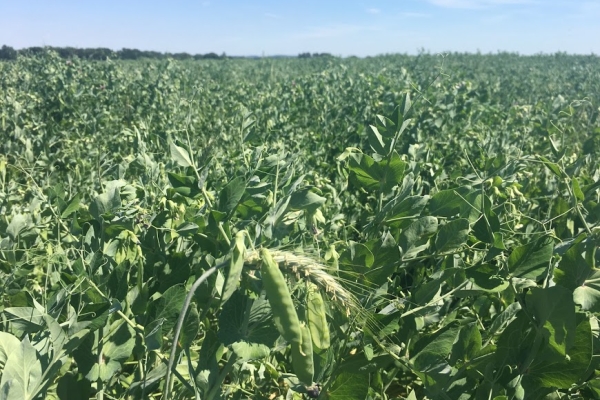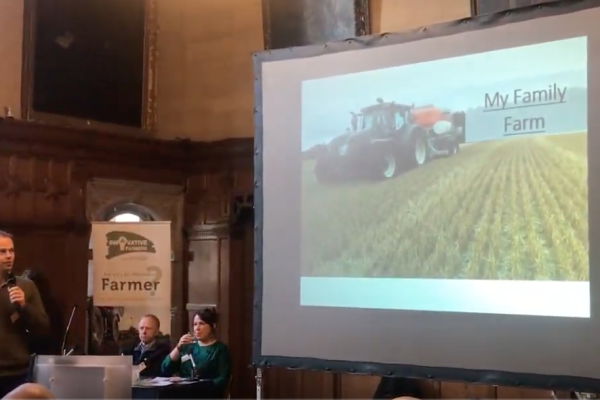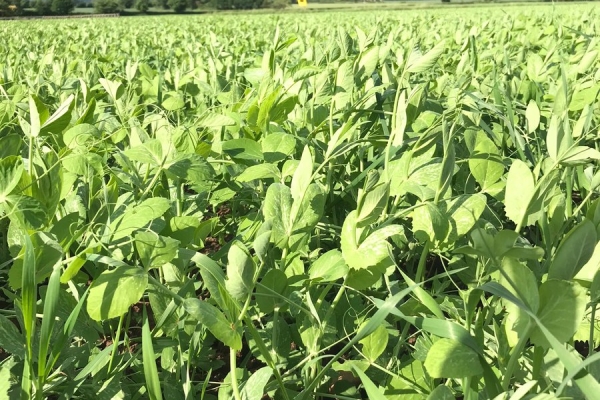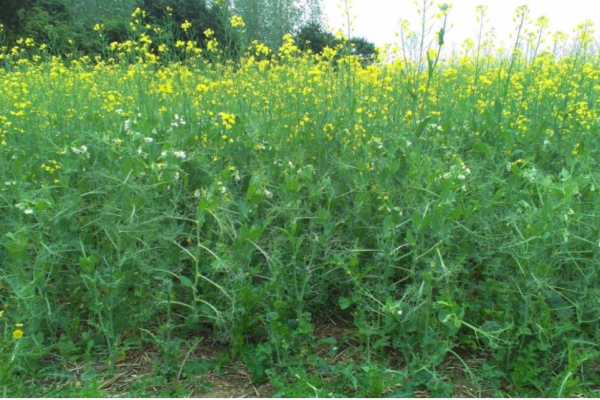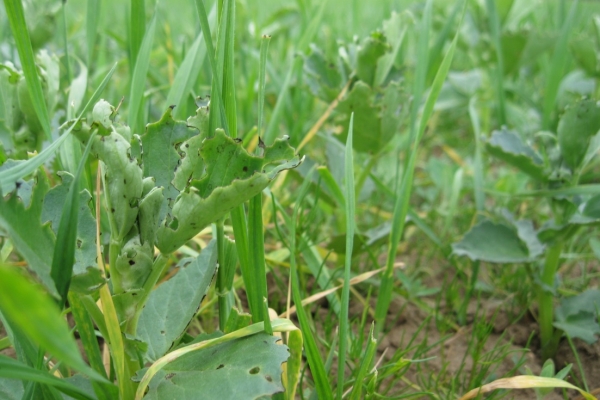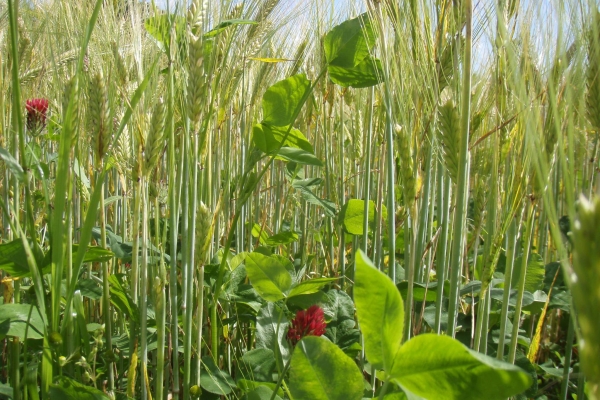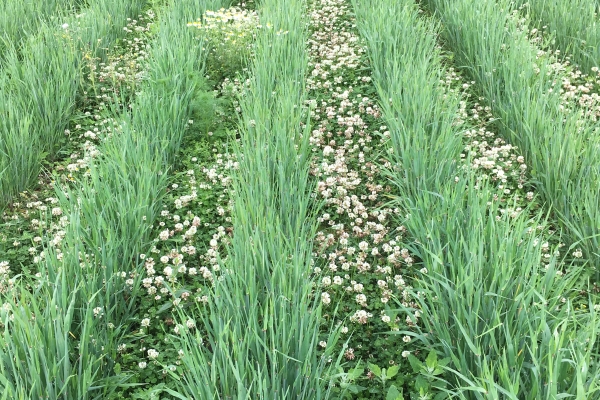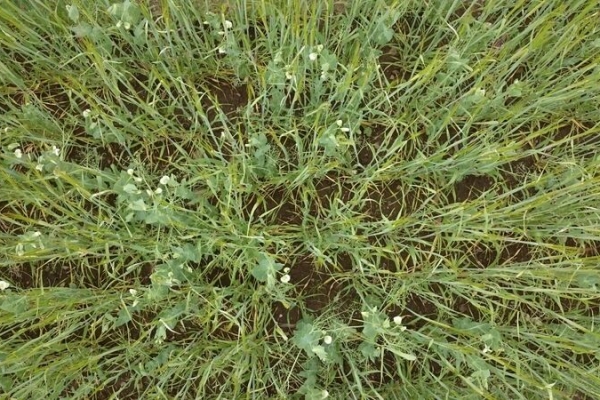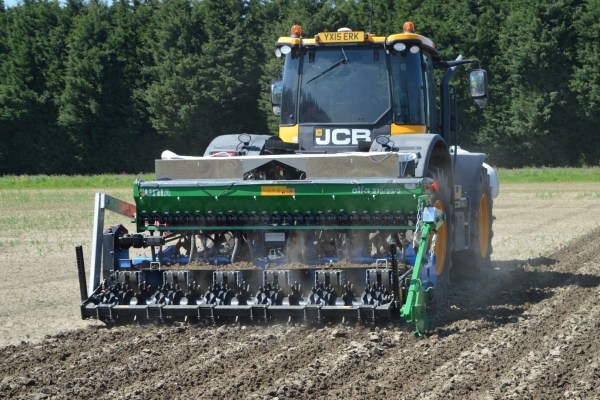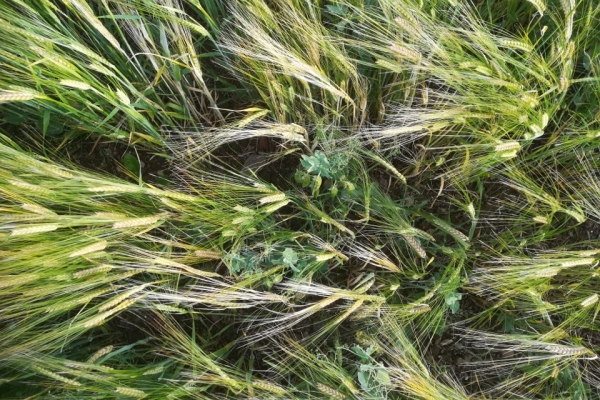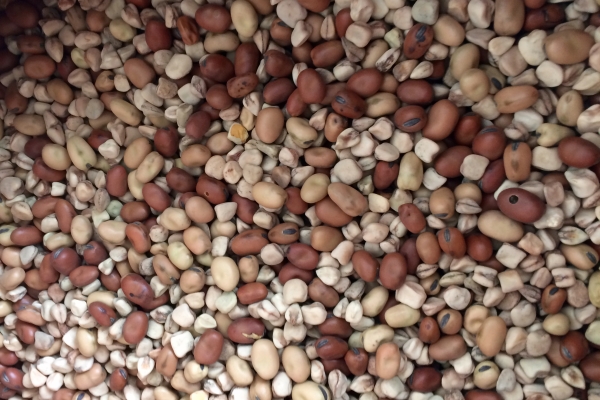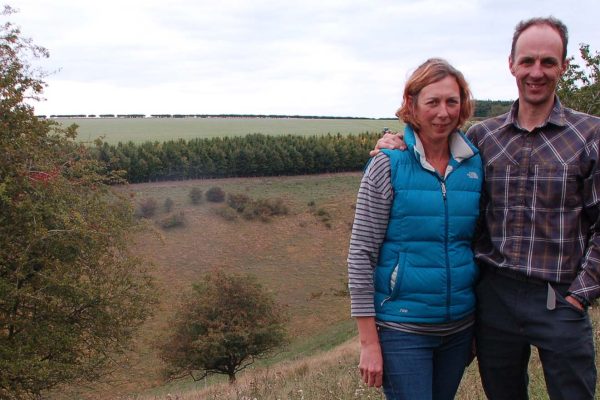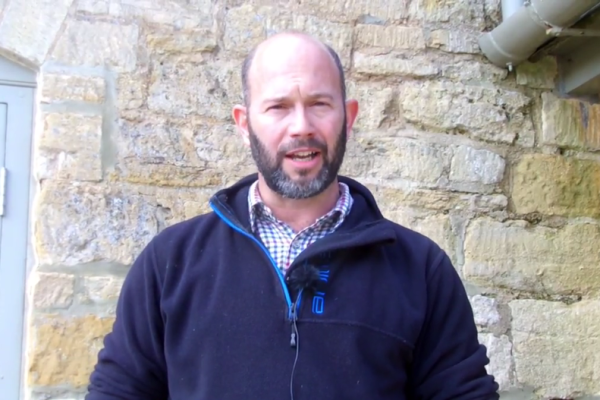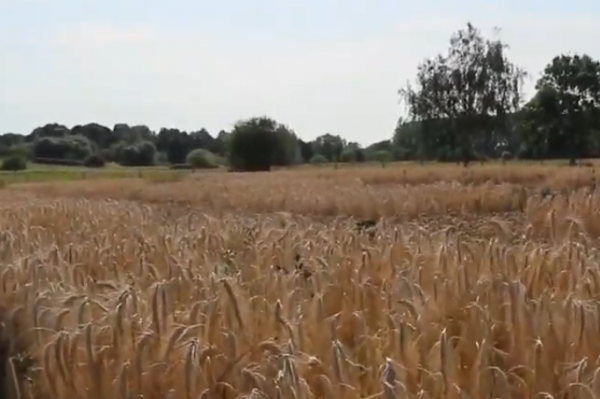Andrew Howard
Bockhanger Farms Ltd
We grow winter milling wheat as our main crop. This goes into mills (normally on the Thames) for bread-making. The majority of our wheat is sold into merchant’s pools to spread the risk of price fluctuations. This year (2021) we are growing winter barley, winter beans, herbage seed, spring bean (undersown), spring bean/oat intercrop, marrowfat peas (some intercropped) and lentil/oat intercrop with the lentils going to Hodmedods.
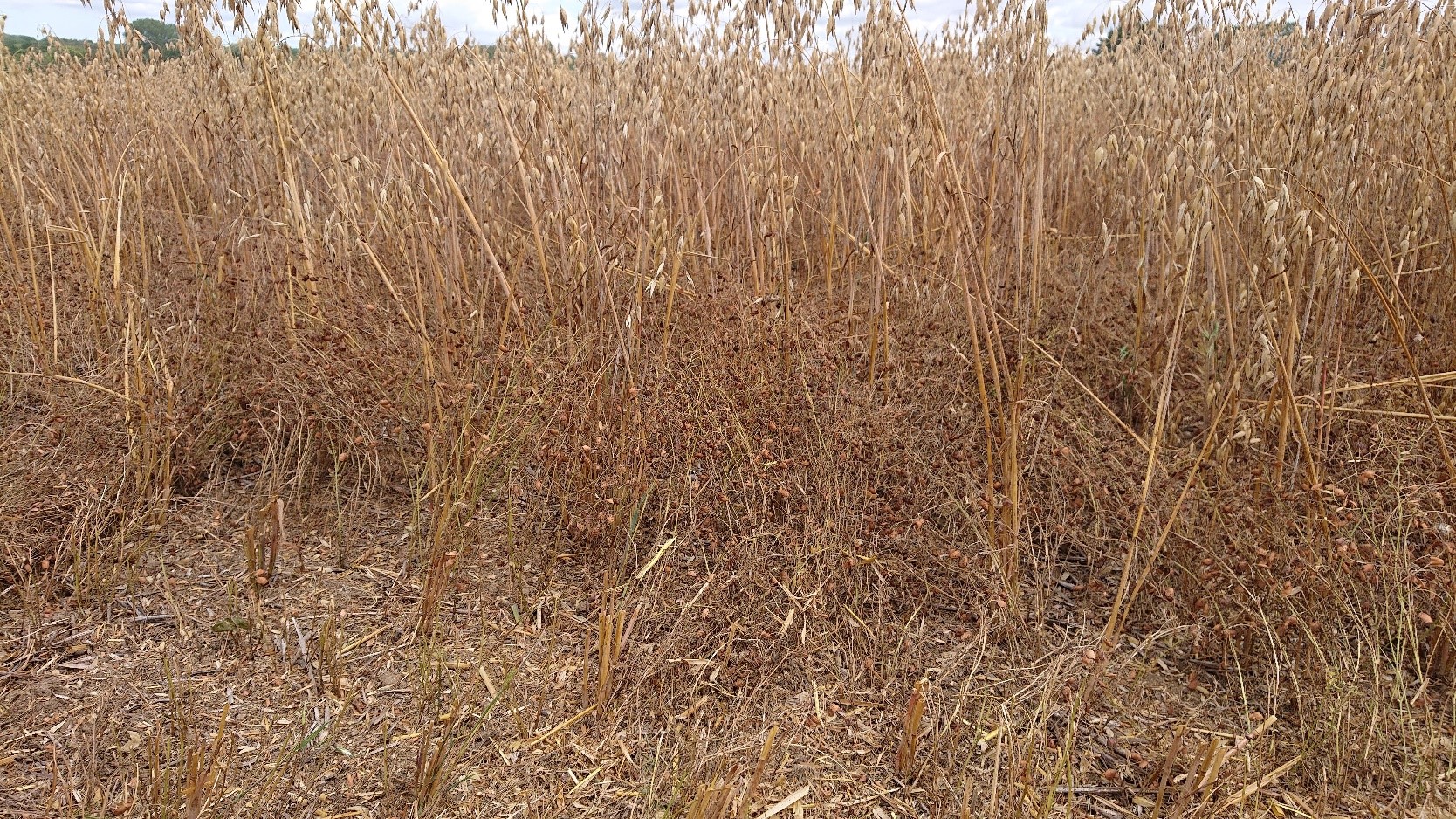
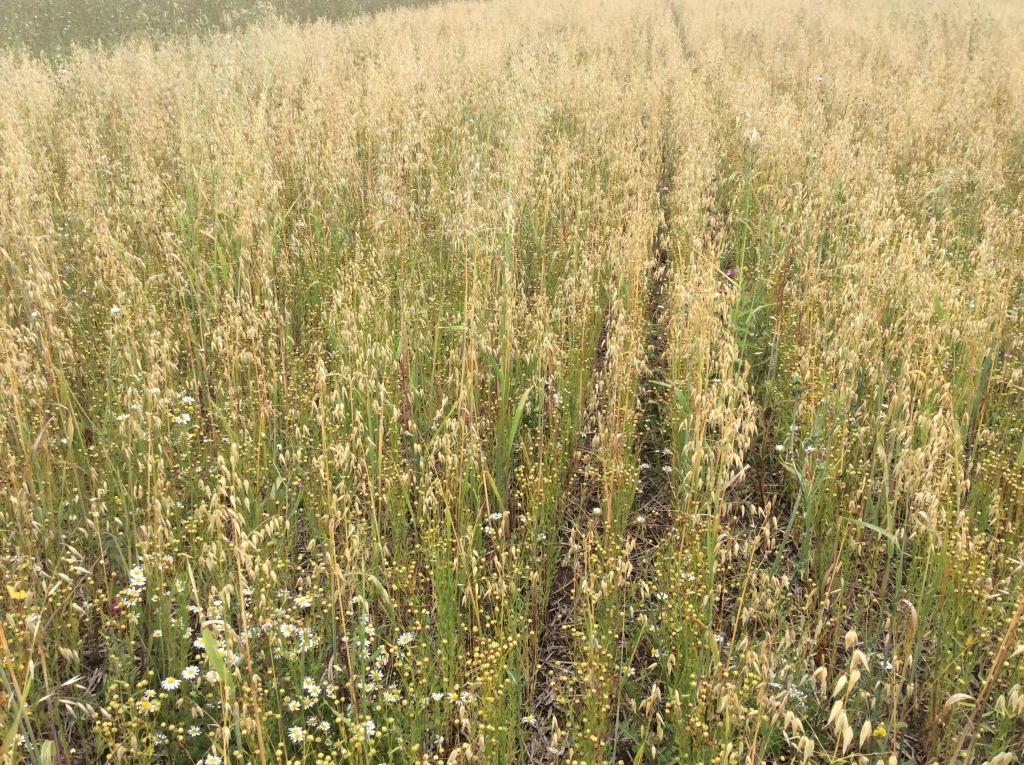
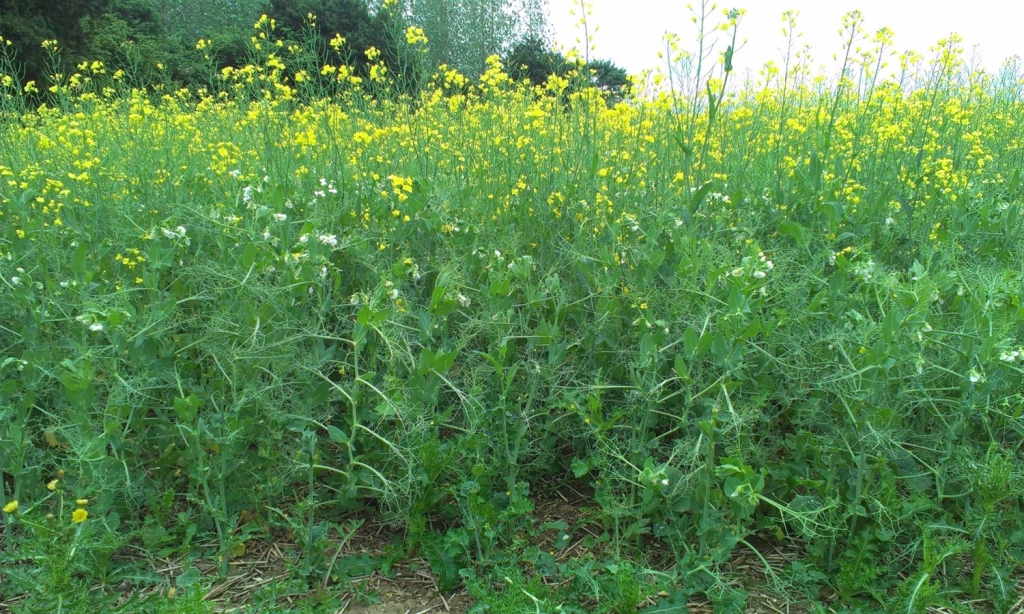
Sustainability in practice
“The answers to your soil problems are beneath your feet, not in the machinery shed.”
My whole philosophy revolves around improving soil health, so we try to minimise practices that damage soils and use certain practices to increase soil health. One of the most damaging things to soil is tillage so we no longer till the soil. Another damaging practice is having bare soil, so we grow cover crops when the ground is going to be bare for more than six weeks. I am now looking at having cover crops there all the time so that we never have empty soil. We bought a second-hand Autocast unit last year to sow catch crops off the back of the combine header.
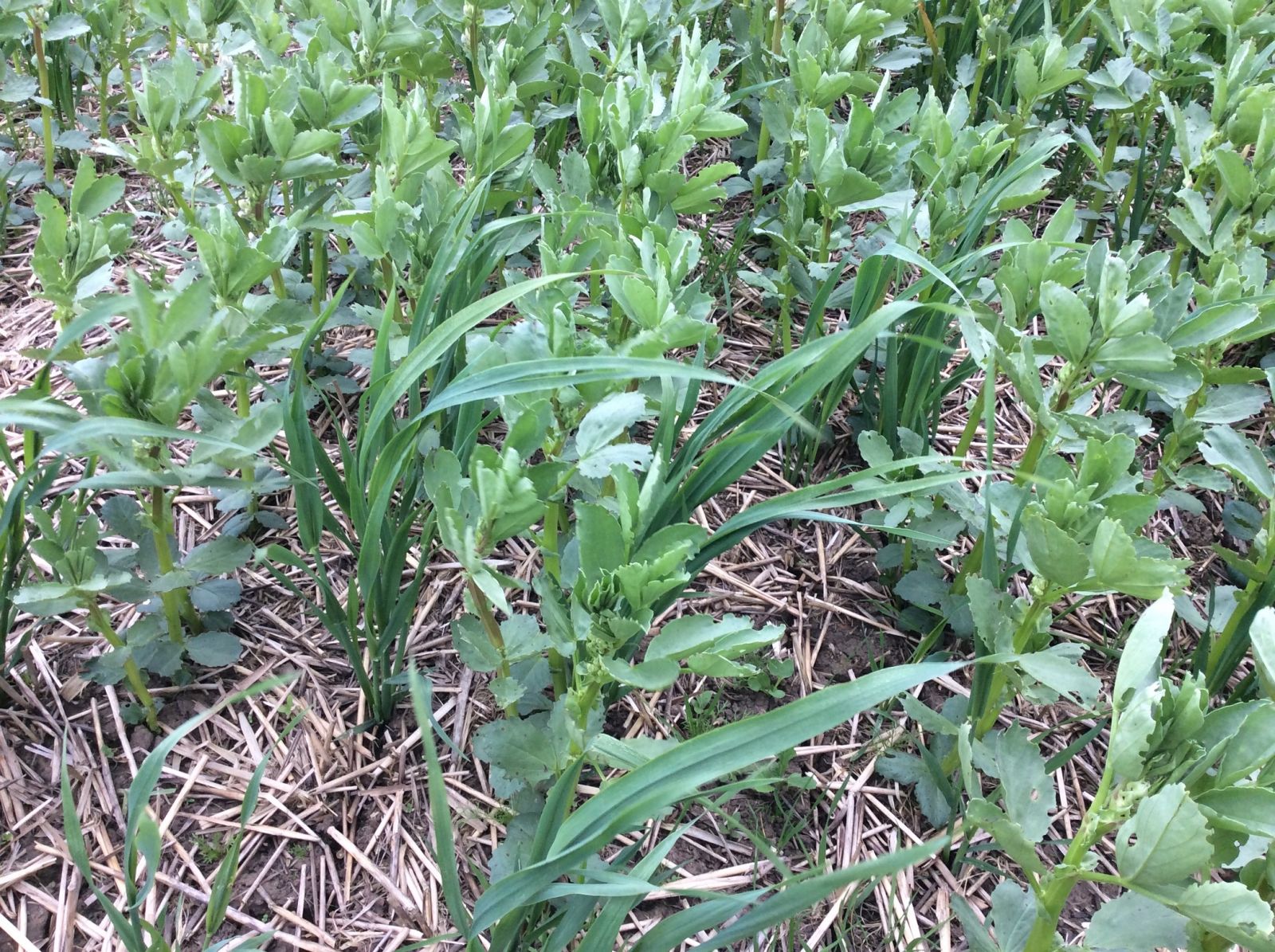
Spring beans with spring oats
Monocultures and poor rotations are also damaging practices. We now have a diverse rotation and I now include companion cropping and intercropping in our rotation to try and reduce monocultures in our farm system. This is the topic of my Nuffield Scholarship which is sponsored by the Agriculture and Horticulture Development Board (AHDB).
Another practice which improves soil health is livestock integration onto crop land. Our cover crops are grazed by sheep, but livestock are still not integrated anywhere near enough.
All the above are great concepts but are not straight forward to implement on the farm; they involve a lot of management and thought. We are changing from an input-intensive farm to a knowledge and management intensive-farm. This can lead to mistakes and mother nature throwing us a curve ball from time to time. We have issues using no-till on heavy ground in wet years but we are working on it. We have bought a mole plough to help improve clay ground and always try to have a catch crop growing in the autumn. With cover crops there always comes the question of which ones and there is no simple answer. Companion cropping and intercropping is even more complex than cover cropping and requires research and more experience on UK farms. We have been carrying out on-farm trials with PGRO, DIVERSify Project and Innovative Farmers and are learning a lot ever year.
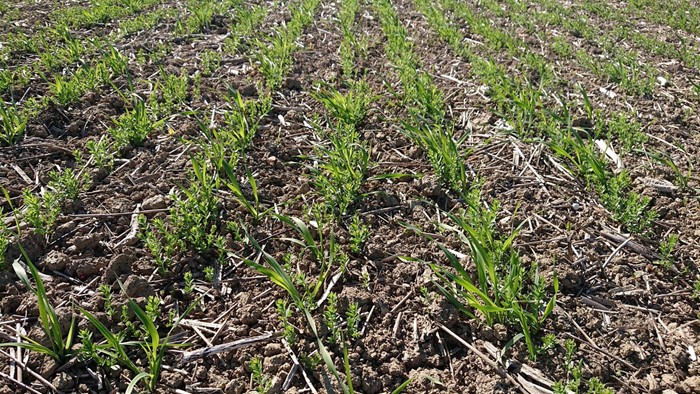
Linseed with a companion of oats to reduce flea beetle damage
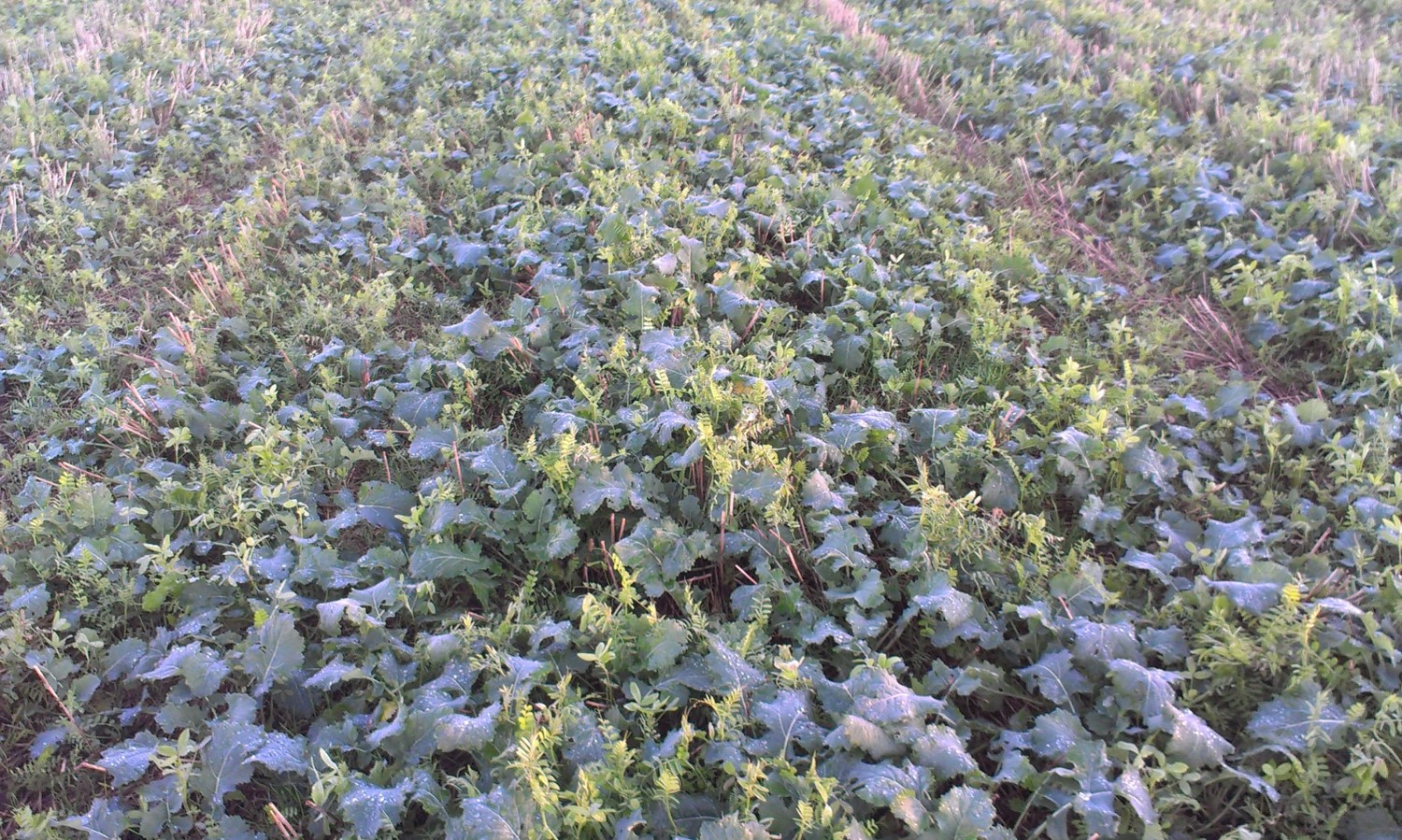
Companion crop of vetch and berseem clover in winter oilseed rape, our first companion cropping experience in 2013
Two things I would say to people thinking about moving into conservation agriculture is do a lot of research, go and see other farmers who are already practicing and join a group like BASE UK where you will meet like-minded farmers with a wealth of experience and advice, visit the Groundswell show when we are allowed. The second point is don’t be scared of making mistakes. I make plenty every year. You learn the most from your mistakes and they help you to move forward. I don’t think I will ever stop learning and improving. Also don’t worry what the neighbours think!
Motivations
I grew up on the family farm and worked there during school holidays but never thought I wanted to go into farming. I went to Durham University and studied environmental science, which I chose because I enjoyed geography and biology. I really didn’t have a career in mind. In my last year of university, I decided instead of working on the farm during harvest I would get another job and I ended up at Tesco. It was that experience of working there, dealing with the general public, which made me realise working on the farm (without the general public) was maybe not a bad option!
When I did finally come home to the farm in 2003, farming was at a pretty low ebb. We had experienced £60/t wheat and spending a lot of time ploughing and cultivating did not make economic sense. So, this got me interested in minimum tillage. This interest led into looking closer at soil and soil health and I started doing a lot of reading around soils, conservation agriculture and regenerative agriculture. My research made me realise there was another way of farming that did not involve high energy and chemical inputs. I now have a mini library at home of books on sustainable agriculture. My motivation is to be able to produce food with minimum inputs, I believe it makes economic, environmental and social sense. This whole goal depends on us improving soil health.
One of the goals I have set for myself in 2016 was to reduce our artificial inputs by 50% in the next five years. Through doing the Nuffield Scholarship and meeting inspirational farmers from around the world I saw first-hand that my goal was possible. We have managed this using many different strategies, the next challenge is to eliminate the remaining 50%. Watch this space to see whether or not I achieve it!
You can view Andy’s Nuffield report ‘The potential for companion cropping and intercropping on UK arable farms’ here.
